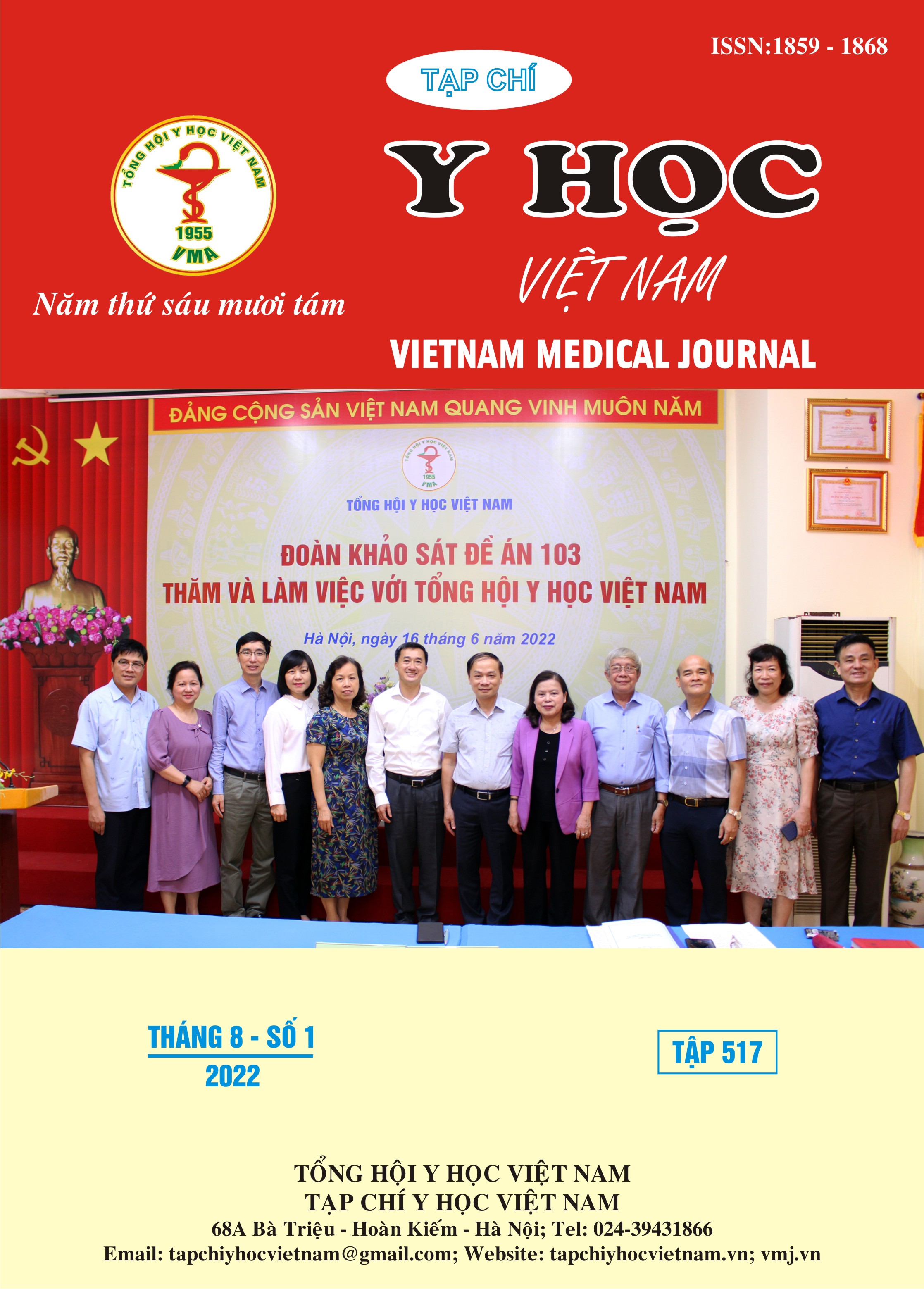COMMENTS ON SOME CLINICAL, PARACLINICAL AND SURVIVAL RESULTS OF GASTRIC CANCER PATIENTS STAGE IB - III ADJUVANT CHEMOTHERAPY XELOX REGIMEN AT NGHE AN ONCOLOGY HOSPITAL
Main Article Content
Abstract
Objectives: Describe some clinical, paraclinical characteristics and survival outcomes of gastric cancer patients stage IB - III adjuvant chemotherapy with XELOX regimen at Nghe An Oncology Hospital. Methods: Descriptive study with longitudinal follow-up on 64 patients diagnosed with stage IB - III gastric cancer receiving adjuvant chemotherapy with XELOX regimen at Nghe An Oncology Hospital from January 2016 to June 2020. Results: The male/female ratio is 2/1, the average age of the disease is 58.6 ± 7.3, the age group 50-59 has the highest rate of 42%, the most common tumor location is the pyloric antrum accounting for 71.9%. Most patients had less than 16 lymph nodes removed accounting for 53.1%, tumor invasion is mainly T4a accounting for 59.3%, N1 lymph node metastasis was the highest with 35.9%, the most common stage of the disease is IIIA accounting for 42.2%, tumor ≥ T3 with lymph node metastasis accounts for 77.3%, adenocarcinoma accounted for the highest rate with 67.2%. The disease-free and overall survival rates at 36 months were respectively 81.4% and 88.6%. Conclusion: The deeper the tumor invasion, the higher the risk of lymph node metastasis. XELOX regimen in adjuvant treatment of gastric cancer helps to achieve high disease-free and overall survival at 3 years in the study group of patients.
Article Details
Keywords
Gastric cancer, XELOX
References
2. Bang Y.J., Kim Y.W., Yang H.K. và cộng sự. (2012). Adjuvant capecitabine and oxaliplatin for gastric cancer after D2 gastrectomy (CLASSIC): A phase 3 open-label, randomised controlled trial. International Journal of STD and AIDS, 379(9813), 315–321.
3. Nguyễn Thị Hảo (2016), Đánh giá kết quả phác đồ XELOX bổ trợ ung thư biểu mô tuyến dạ dày đã phẫu thuật tại Bệnh viện Ung Bướu Hà Nội, Luận văn thạc sĩ, Đại học Y Hà Nội.
4. Cho J.H., Lim J.Y., và Cho J.Y. (2017). Comparison of capecitabine and oxaliplatin with S-1 as adjuvant chemotherapy in stage III gastric cancer after D2 gastrectomy. PLOS ONE, 12(10), e0186362.
5. Nguyễn Thị Vượng (2013), Đánh giá hiệu quả phác đồ XELOX trong điều trị bổ trợ ung thư dạ dày, Luận văn thạc sĩ, Đại học Y Hà Nội.
6. Khanjani N., Mirzaei S., Nasrolahi H. và cộng sự. (2019). Insufficient lymph node assessment in gastric adenocarcinoma. Journal of the Egyptian National Cancer Institute, 31(1), 2.
7. Shin K., Park S.J., Lee J. và cộng sự. (2019). Efficacy of capecitabine and oxaliplatin versus S-1 as adjuvant chemotherapy in gastric cancer after D2 lymph node dissection according to lymph node ratio and N stage. BMC Cancer, 19(1), 1232.
8. Jiang Z, Sun Y, Zhang W, et al Comparison of S‐1 plus oxaliplatin (SOX) and capecitabine plus oxaliplatin (XELOX) as adjuvant chemotherapies for stage II and III gastric cancer after D2 resection: A single‐center retrospective study - Jiang - 2020 - Asia-Pacific Journal of Clinical Oncology - Wiley Online Library. , accessed: 06/07/2022.


